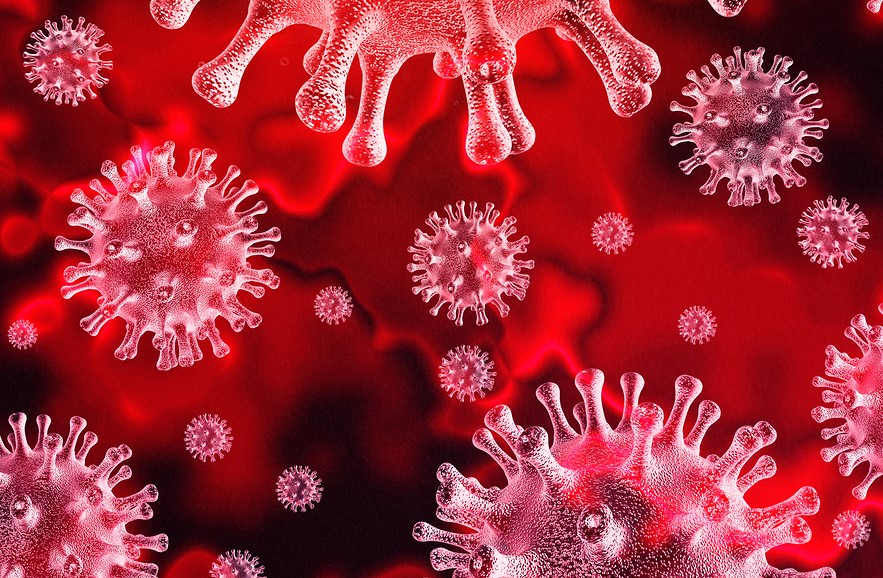Claims That D614G Strain Is Less Deadly Is Fake News And Misinformation. Irresponsible For News Agency To Make Such Claims Without Supporting Studies
Source: D614G Strains Aug 19, 2020 5 years, 5 months, 1 week, 6 days, 6 minutes ago
D614G Strains: A news agency report of a doctor from a South-east asian country that cannot even control the COVID-19 infections in its own backyard, claiming that the D614G strain of the SARS-CoV-2 coronavirus is less deadly is an example of total irresponsible reporting and should be deemed as fake news and misinformation by health authorities across Asia immediately. There are no supporting medical and scientific studies to demonstrate that the D614G strain is less deadly.
Malaysian health authorities were correct in their warnings with regards to the D614G strains of the SARS-CoV-2 coronavirus but unfortunately one country in the region famous for trying to be 'smart arses' were making comments without any supporting studies to claim that the D614G coronavirus was less deadly. (this country cannot even control the COVID-19 situation in its own backyard and worse treats its foreign labour in a disgraceful manner with many now infected with the COVID-19 disease.)

The news release saying that D614G is less deadly that was covered by numerous media in the Asia Pacific region can give rise to complacency to both common people and also certain authorities just at a time when infection rates and death rates are still increasing and when there seems to be surges and reemergence of the SARS-CoV-2 coronavirus in countries that had once controlled the situation.
There are numerous supporting studies to show that the D614G strain is more infectious due to the mutation that enhances its binding attraction and stability.
https://www.scripps.edu/_files/pdfs/news-and-events/The%20D614G%20mutation%20in%20the%20SARS-CoV-2%20spike%20protein%20reduces%20S1.pdf and
https://www.biorxiv.org/content/10.1101/2020.06.20.161323v2.abstract and
https://www.sciencedirect.com/science/article/pii/S0092867420308205 and
https://www.biorxiv.org/content/10.1101/2020.06.15.151779v2
Studies also show that the new D614G strain as a result of better binding and entry capabilities also indirectly results in higher viral loads in patients.
https://www.ncbi.nlm.nih.gov/pmc/articles/PMC7310631/ and
https://www.sciencedirect.com/science/article/pii/S1201971220303787 and
https://www.biocentury.com/article/305127?editionId=ck9w2iitc0xao0128mb77rprs&editionType=daily
In the research that quoted often by many by (Tracking Changes in SARS-CoV-2 Spike: Evidence that D614G Increases Infectivity of the COVID-19, by korber et al, it was reported that the D614G strain was more resis
tant to neutralizing effects from convalescent sera compared to other strains, possibly implying that treatment with antibodies and vaccines could be more difficult that compared to other strains.
https://www.sciencedirect.com/science/article/pii/S0092867420308205
Studies show that the D614G strains are better at affecting the other cells and tissues in the human host as a result of its enhanced binding capability.
https://www.biorxiv.org/content/10.1101/2020.06.14.151357v2.full
This could indirectly mean that disease severity could be enhanced as a result of high viral loads coupled with more tissues and organs being infected .
Already there are studies that support that the D614G strains increases disease severity.
https://www.sciencedirect.com/science/article/pii/S1201971220303787
As severe conditions of the COVID-19 are far more difficult to treat and often lead to deaths, it is safe to say to a certain degree that it is more deadly in a way.
There are also studies that show that newer sub-variants within the D614G strain could affect antibody and vaccine developments
https://www.mdpi.com/2076-0817/9/5/324
While most doctors and virologists like to believe in the old school of thought that as a virus mutates more it ultimately becomes ‘weaker’ and might eventually die off, it the case of the SARS-CoV-2 coronavirus, it is actually evolving and selectively adapting, not necessarily advantageous for the host. (to put it bluntly, yes it might not kill the host fast as that affects its own existence but rather it 'kills' ithe host slowly and this might correlate with what we are seeing in terms of emerging long term health complications.)
There can be lots of arguments when we compare the D614 and G614 strains but to seriously claim that D614G strains are less deadly without supporting studies is not just wrong but it could cause the masses to have the wrong idea.
We really hope that health authorities in the region would look into this and deal with it appropriately.
It is also interesting to note that most of the countries like Europe, America, South America and Iran where death rates are high have a higher prevalence of the D614G strain.
For more on the
D614G strains, keep on logging to Thailand Medical News.
